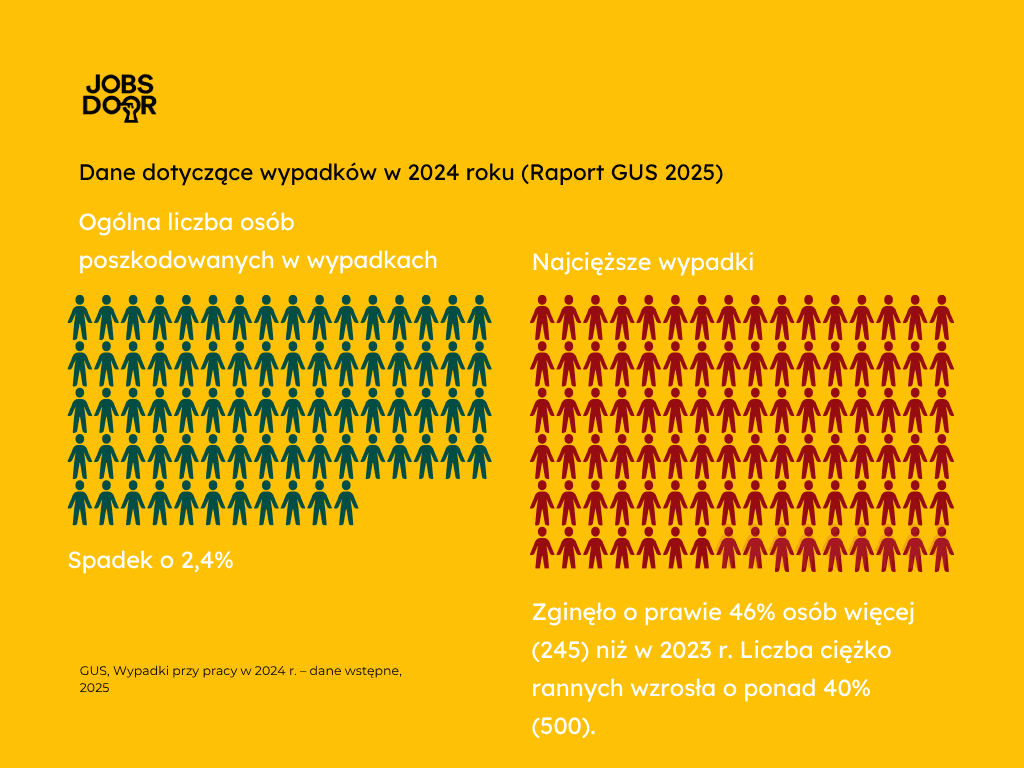The culture of occupational safety should not only be a good practice that companies use occasionally and with good intentions - it should be a code of ethics and also be required by law, so that the Polish quality of safety can be a model for other countries. This is particularly important considering the developing offshore sector in Poland; it is here that the risk of accidents may increase, which is why we need training on health and safety. This is also crucial in the context of the repolonization of the economy - if we want offshore to be full of Polish companies, these companies must meet the highest criteria of safety, comparable and even better than Scandinavian ones. Accidents at work
Although the total number of people injured in accidents at work in 2024 fell by 2.4% compared to the previous year (to 67,000 cases) and the accident rate decreased from 4.90 to 4.80, the data on the most serious accidents are alarming. As many as 245 people died last year - nearly 46% more than the year before - and the number of seriously injured rose to 500, an increase of more than 40%. This is a clear signal that although there are fewer events, they are increasingly serious in consequences. The highest accident rate was recorded in voivodships with a high concentration of infrastructure investments, such as Silesia (6.53), Opole (6.17) and West Pomerania (5.88). In the face of the dynamic development of the offshore sector, including the construction of wind farms in the Baltic, the question arises: are job security and organizational culture in these industries ready for such a scale of risk?
.png&w=3840&q=75)

The need for action The data of the Central Statistical Office, which reveal the still high number of serious accidents, are a clear signal to employers: the area of occupational safety still requires real, structured action. The key here is not only mandatory audits and occupational risk assessments, but above all their practical use - not as a control tool, but as systematic monitoring of the safety status, which allows rapid identification of threats and improvements. Equally important is the proper preparation of employees for the job - through regular and well-designed training - and the building of an organizational culture that is based on responsibility and mutual attentiveness in the workplace. Security cannot be hierarchical - everyone is responsible for it, regardless of position. A lower-level employee who draws the attention of a supervisor to a violation of health and safety rules not only acts in accordance with company procedures, but above all protects the health and lives of others. It is from this order of values, based on respect, responsibility and courage, that a true, lasting culture of safety can be born. summary In times of dynamic development of the offshore sector, job security cannot be an addition but must be the foundation. The increasing number of the most serious accidents at work shows that the safety culture in Poland needs a systemic, lasting and common change. If we want Polish companies to play a major role in offshore, they must meet not only technological, but above all human, ethical and organizational, security standards. Sources: 1.https://stat.gov.pl/files/gfx/portalinformacyjny/pl/defaultaktualnosci/5476/3/58/1/wypadki_przy_pracy_w_2024_r.__dane_wstepne.pdf





